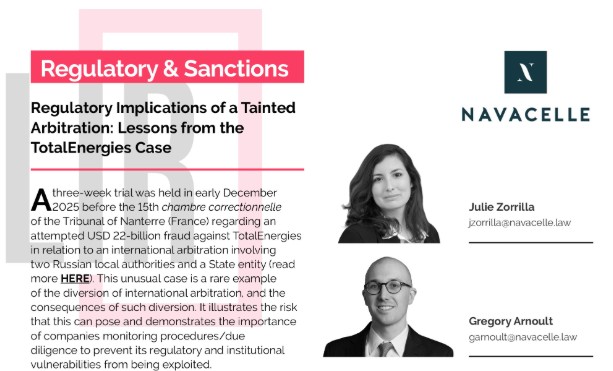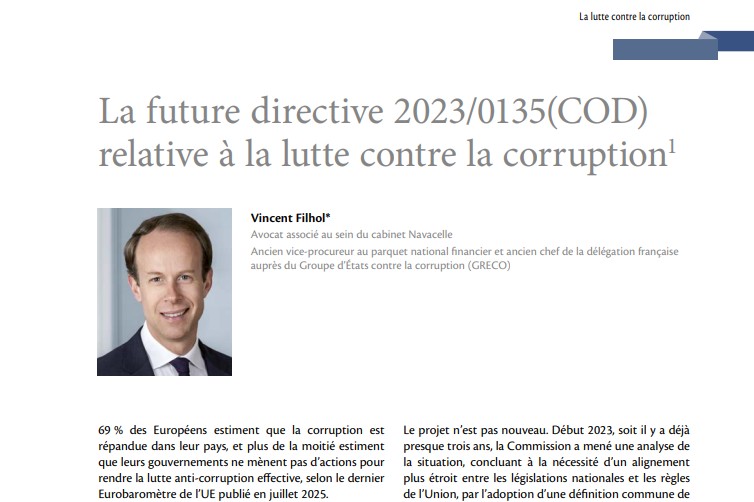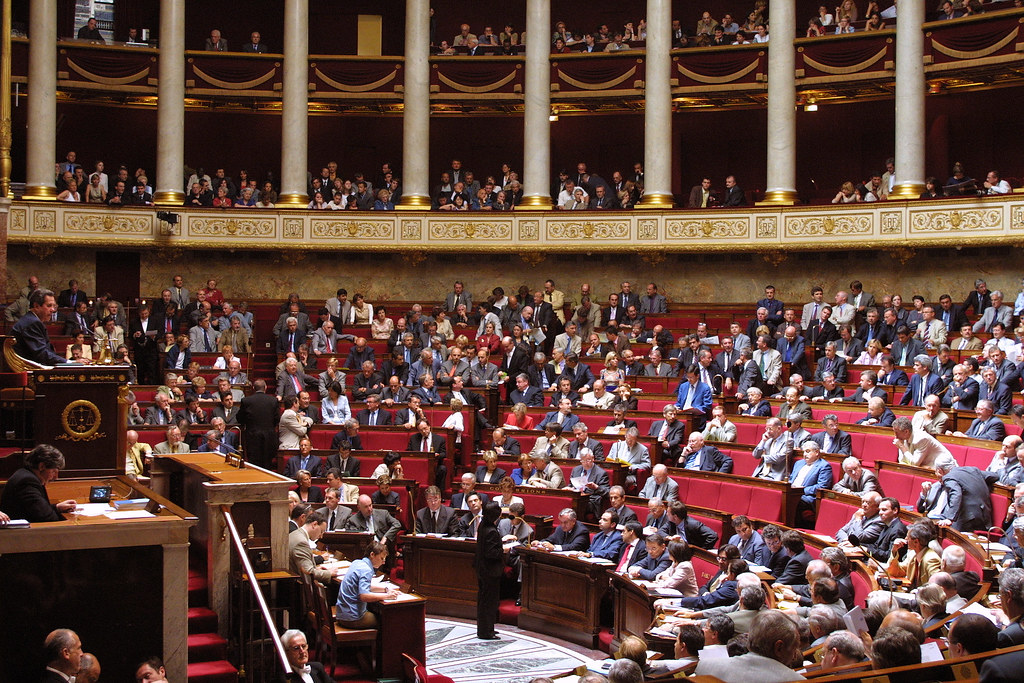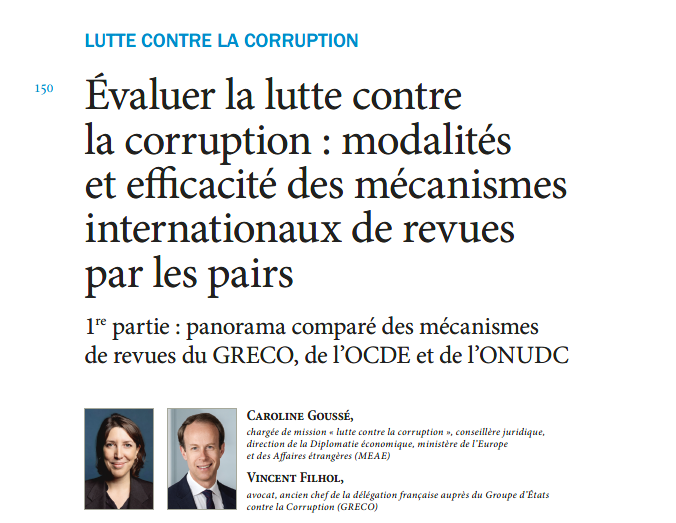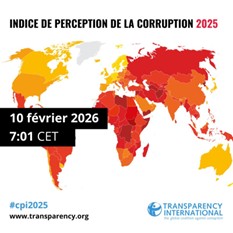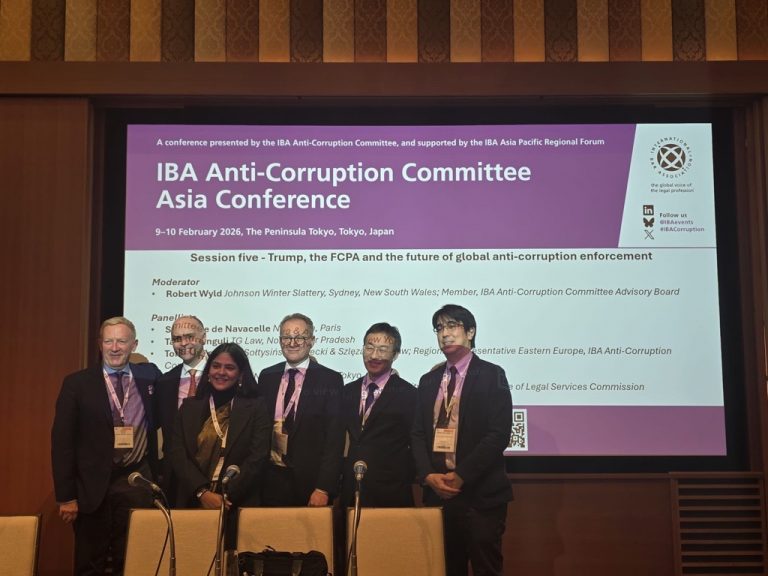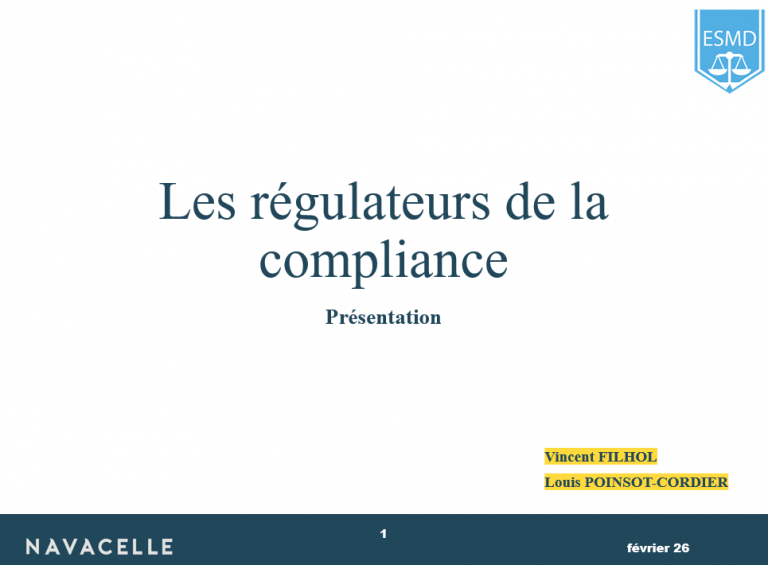On March 3, 2020, the French Senate passed and communicated “the European Public Prosecutor’s Office and Specialized Criminal Justice” Bill [1] to the National Assembly in order to adapt the French criminal procedure to the recent creation of the European Public Prosecutor’s Office (hereafter “the EPPO” [2]).
The EPPO, implemented on October 12, 2017 by the European Union [3] to slow the negative impact on the Union’s annual budget, i.e. almost 4%[4] , has the power to directly pursue offenses, e.g. tax fraud or embezzlement, affecting the European Union’s financial interests within the 22 member countries (hereafter “participating countries”).
This judicial authority will rely on a two-level structure consisting of a central, i.e. a European level with a European Chief Prosecutor, two deputies and a college of 22 prosecutors, and of a decentralized national level with European Delegated Prosecutors (“EDP”) for each participating country. The central level establishes the principles guiding judicial action via strategic guidelines and supervision of the investigations conducted at national level by the EDP[5] . At decentralized level, the EDPs will oversee domestic investigations, prosecutions and bring to judgement cases under EPPO’s competence[6] .
Pursuant to French law, several judicial actors with respective specific roles are involved in the sanctioning of those having committed offences. The Public Prosecutor (Procureur de la République) represents the interests of the State in criminal proceedings and exercises prosecutorial discretion in deciding whether to press charges. The Public Prosecutor also carries out preliminary acts of investigation. The Investigating Judge (Juge d’instruction) is an independent and impartial judge, assigned to lead complex criminal investigations and decide whether to refer the case to the court for judgement or dismiss the charges. As a reflection of this impartiality of this judge, the investigation’s purpose is to find the truth, with equal emphasis on establishing innocence and establishing guilt.
The main purpose of the French Bill is therefore to adapt French criminal proceedings to this extensive and unprecedented mission of appointed EDPs.
I. The Bill establishes a special status to protect the independence of the European Delegated Prosecutors
In France, Prosecutors are placed under the authority of the Ministry of Justice, from which they receive instructions on criminal policy.
To guarantee the independence of the EPPO and avoid any national interference, the participating countries have committed to respecting the independence of the EDPs. They are prohibited from “seeking to influence [the EDP] in the performance of their tasks » [7].
To honor its commitment, the French Parliament decided that the EDPs, while remaining French prosecutors, will be considered as external to the national judicial body and therefore, external to the hierarchy of the Ministry of Justice.
Moreover, despite the Public Prosecutor of the Paris Court of Appeal having the authority to initiate disciplinary proceedings against national prosecutors, he will not have the authority to do so against the French EDPs [8]. The French EDPs will thus only report to and receive instructions relating to European prosecution mechanism from the EPPO.
In addition, to ensure the effectiveness of their mission and according to soon-to-be-implemented article 696-109 of the French Code of Criminal Procedure, the EDPs will be granted the right to represent the EPPO before a majority of French jurisdictions, i.e. the judicial courts, the Courts of Appeal, the Investigating Judge’s chamber, and to appeal against any decision taken by the courts of law.
II. The Bill establishes a new status for the European Delegated Prosecutors, revolutionizing French criminal procedure
De facto, the jurisdiction of the EDPs is limited as its scope pertains to offences against the financial interests of the European Union [9]. And although article 4 of the European Regulation states that the EPPO shall “exercise the functions of prosecutor in the competent courts of the Member States, until the case has been finally disposed of”, it has been decided that the EDPs appointed in France will not intervene before the French Supreme Court (Cour de Cassation [10]).Despite these limits on the EDPs’ jurisdiction, the prerogatives granted to them constitute a marked turning point in French criminal procedure law.
Indeed, while the Bill facilitates the integration of the French EDP into the national procedural framework, it also aligns the EDP prerogatives with those of the French Public Prosecutor and those of the Investigating Judge. Some procedural acts normally within the competence of the Investigating Magistrate, will thereby be carried out by the EDPs directly [11]. The EDPs will be empowered to investigate with impartiality, to prosecute, to bring cases before court, to order judicial supervision or to decide on the status of the defendant, e.g. suspect, assisted witness or witness. Their investigations will be conducted within the existing investigative framework at both the investigation and the pre-trial stages.
Considering these significant changes in procedure, it was deemed appropriate to provide that the French EDPs must request the authorization of the liberty and custody judge (Juge des libertés et de la detention) to implement measures that infringe individual liberties, e.g. searches without consent, wire-tapping, geo-location and special investigative measures [12].
Despite the explanations provided during the first parliamentary debates, many questions are still pending, namely with respect to defense rights. Close attention should thereby be paid to future debates before the National Assembly and the effective implementation of these EDP to avoid curtailing of defense rights.
